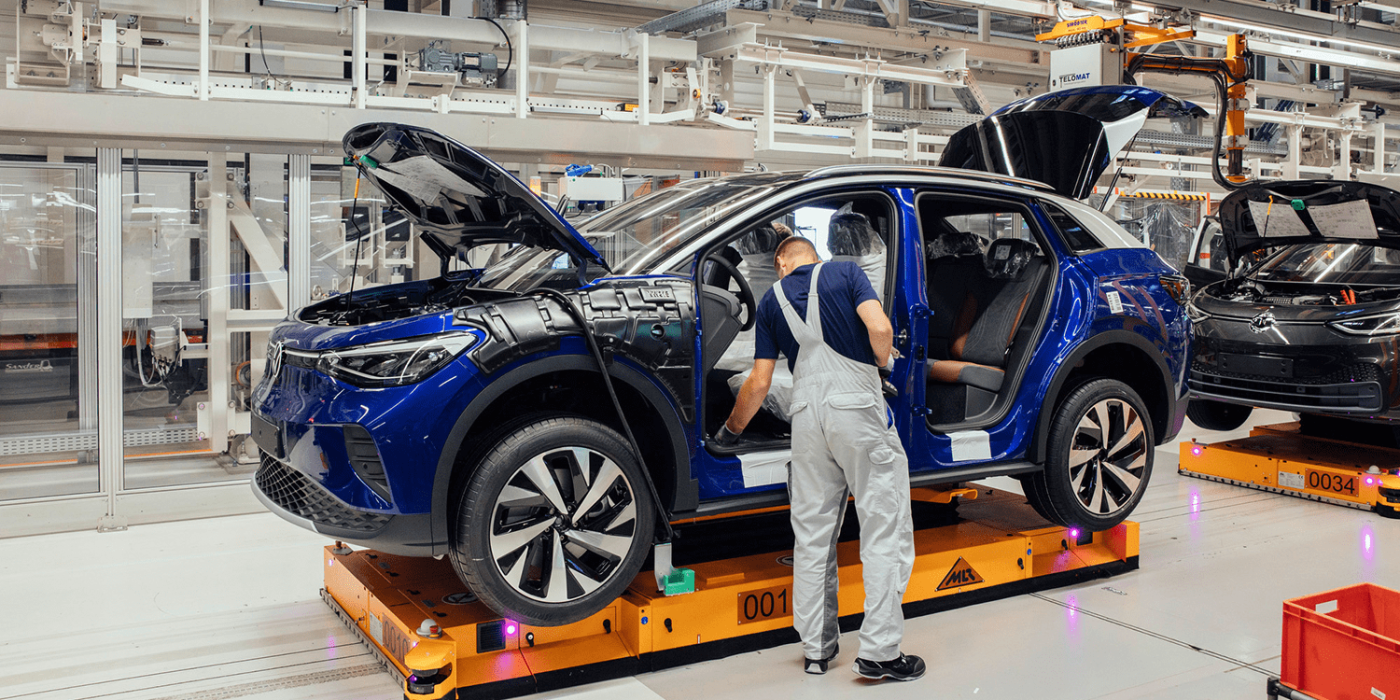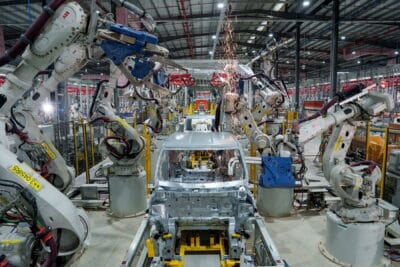Germany: subsidy reform slows order volume across the board
Demand for electric cars has plummeted in Germany following the reform of the environmental bonus with reduced purchase premiums that came into force at the beginning of 2023, a media report suggests. The situation is said to be particularly explosive for one manufacturer: Volkswagen.
The German Federal Motor Transport Authority (KBA) recently reported 52,988 new electric cars for June, an increase of 64.4 per cent compared to last year. According to the report, the still positive new registration figures are essentially based on the remaining orders from 2022. “Renault, Audi, Mercedes, even Porsche or Tesla – everywhere dealers are not getting rid of their electric cars. There is currently no sign of the boom of the past years,” wrote the German business portal Manager Magazin.
The decline in demand for electric cars at Volkswagen is particularly explosive. At the turn of the year, the order backlog for the electric car plant in Zwickau still stood at almost 300,000 cars, but the number of orders has currently shrunk to significantly less than half. “Since January we have had a strong reluctance to buy electric cars, regardless of the brand,” a Volkswagen Group dealer said. Last year, 75,000 orders were placed for the ID.4, of which less than 20,000 remained. If the situation does not improve quickly, production at the Zwickau EV plant will be switched from three shifts to two. In addition to the ID.4, the coupé offshoot ID.5, the compact ID.3, the Cupra Born and the Audi Q4 e-tron SUV and Sportback are also built in Zwickau. If the third shift is indeed eliminated, several of the company’s electric vehicle models would be affected.
At the end of June, it was reported that VW was temporarily reducing the production of electric cars at its plant in Emden. In Wolfsburg, where VW has set up an additional production line for the ID.3 as overflow production from Zwickau at a cost of around 50 million euros, only a “small double-digit” number of ID.3s are currently to be produced per day, according to Manager Magazin. According to Handelsblatt, Volkswagen is struggling with demand problems ( for its electric models) not only in Germany but in Europe as a whole.
The Wolfsburg board is said to have sensitised top management to this explosive situation, to put it kindly. The Manager Magazin writes of a fiery speech that VW brand manager Thomas Schäfer gave on Monday to around 2,000 managers connected from all over the world. “The roof is on fire,” Schäfer said, according to participants. With the economy heading into a recession and competitors in the same segment earning 2-3 times as much as the VW brand, “the perfect storm is brewing”. The warning was backed up with a drastic measure: Schäfer imposed an immediate spending freeze. The magazine writes that “nothing more should be approved outside of major investments that are not prescribed by law”. However, this information has not been officially confirmed by Volkswagen.
The thesis that the environmental bonus reform is causing a slump in electric car orders is, however, only supported in the article with figures from the VW Group. Without citing a source, Porsche only states that demand for the Taycan in Germany has halved, but the Taycan is not eligible for subsidies anyway, so the environmental bonus amendment cannot be the reason. Regarding the declining demand for Tesla, the magazine writes that “the yards and car parks have been much fuller than usual in recent weeks”.
Finally, the report also suggests that the problem at Volkswagen could be homemade. When only a few electric cars could be built in the wake of the semiconductor crisis and the production problems after the start of the conflict in Ukraine, VW had instructed its dealers to “keep customers mobile”. To do so, for example, expiring leasing contracts were extended. However, as production started faster than expected, there were still no buyers, as customers were still fulfilling their extended leasing contracts.
With reporting by Sebastian Schaal, Germany.
manager-magazin.de (paywall, in German)





0 Comments